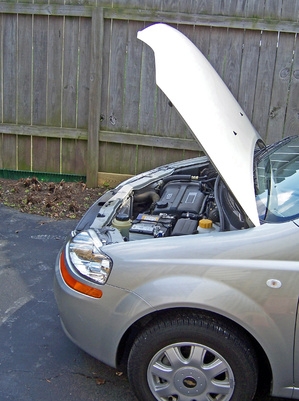
A car engine needs to emit gasses, or exhaust, to release the heat that accumulates within the engine compartment. Exhaust blowback can occur when the gasses are emitted incorrectly within the engine compartment.
The pressure within the combustion area of the engine becomes extremely high, allowing the pistons to function. Each piston houses multiple rings for sealing the air and fuel mixture within the compartment. If the ring seals fail, exhaust blowback results.
The result of exhaust blowback is that the gasses find themselves within the crankcase, trying to escape any way they can, such as through a dipstick hole. Additionally, these gases contain small droplets of oil which are then expelled from the vehicle, causing oil loss over time.
The older the vehicle, the more likely that exhaust blowback can occur. Make sure that all caps within the engine area, as well as the dipstick hole, are tightly secure to keep the gasses within the engine compartment, where they belong.